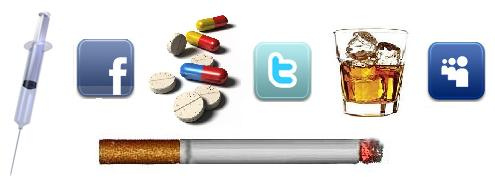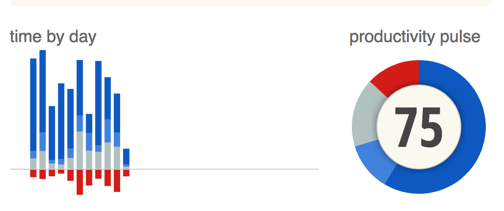My experiences with Facebook abstinence
I was angry. There was another story about how a section of the media was distorting a cause that I believed in. A short scroll below…

I was angry. There was another story about how a section of the media was distorting a cause that I believed in. A short scroll below, there was another completely different story with a diametrically opposing viewpoint. This has now become a daily phenomena. If you scan my Facebook feed on a daily basis, you would see my Facebook “friends” (most of whom I don’t know in real life) sharing something either pro-something or anti-something with a generous dose of UNILad videos, pointless pictures of a recent trip to a park, check-ins into some airport/hotel or coffee shop (yes really, a coffee shop). I am sure, that you, the reader has a similar set of trends on your Facebook feed. Your interests and friends dictate the content you see on Facebook, or any other social network, really. I am no political writer or activist. I am a regular user of Facebook who you might call a lightweight keyboard crusader. Someone who comments and shares articles or outrage at causes, from the comfort of their homes and without really lifting anything more than a finger for them. I am interested in politics and some causes and I share content on Facebook either appreciating something I like or maligning something I dislike.
Over the past few weeks I had discovered something very disconcerting with my state of mind when I was on Facebook. As I saw the barrage of political content both pro and against the causes I was interested in, I found myself getting angry. While this was not the enraged type of anger, which spurs people to action. This was in the territory of being irked by something and feeling strongly about it before realizing that I could do nothing about the things that bothered me. Especially because I, as a keyboard activist didn’t do squat about any of these causes and was relegated to only reading about them on Facebook. Were these articles real? Were they fake news? I didn’t know. I don’t think most of us do either. Yet we find comfort sharing this content with our network, often relentlessly, being completely confident that we are doing it for the “greater good of the world”.
As I opened up the Facebook app on my phone yet again, sometime in late October 2017. I read something (don’t remember what it was) that made me angry. I had been feeling the same kind of anger for a while now and I felt temporary solace when I shared the articles that I agreed with, as if I was some esteemed and well-researched journalist. I was about to do the same with this article when I realized:
What the hell am I doing? Do I know what I am talking about? Have I done enough due diligence to check what I have posted? Do I even really give a shit about this article that I am sharing? WHAT IS THE POINT OF THIS?
I realized that the answers to most of those questions was a resounding “NO”. I realized then that I had polluted my mind with this content, which may be true, may be false, may be relevant to some and irrelevant to others. But I failed to recognize that it wasn’t relevant to me. It wasn’t useful to me. I find it hard to imagine how it would be useful to anyone else, except proving that I am another narcissistic asshat that thinks that my opinions matter more than someone else’s.
Right there, I removed Facebook from my phone and decided to stay off it for a while (read indefinitely). Its been around 4 weeks now. Here are the results.
Productivity
I believe that Facebook is a massive influencer of productivity. But, I am sure you already know that. You have heard of several experts and read several articles (probably on Facebook itself) about how Facebook encourages mindless surfing, yada yada yada. I am not here to preach. I am just here to talk about my results. Now, I am not a Facebook addict or a non-productive person (or at least I hope not). I run a successful IT Security company and my work is quite demanding. I love what I do and I would hate anything that comes in the way of quality work. However, even for me, some of these insights were highly pertinent.
To track productivity, I use RescueTime. Based on my RescueTime Dashboard, it appeared that i brought down my social networking time from 13% for a 3 week period to 6% in an equivalent 3 week period. This is a reduction by more than 50%. I realized the following based on this number:
- Because I reduced my access to Facebook, I involuntarily reduced my time on LinkedIN and Twitter. It seems that all of them are connected in my head somehow.
- Again, based on my RescueTime results, my decreased Facebook time, led to me not clicking on clickbait articles, videos, etc (which are different types of distraction altogether)
- My overall productivity score in RescueTime, which had been in the 6os for a long time, suddenly jumped to 75, which I only managed to achieve when I was writing my book or when I was neck-deep in an intense product development sprint.

State of Mind
One of the primary reasons for me abstaining from Facebook was to stop feeling a sense of anger and disappointment at the articles and content that I saw being shared there. In the 4 weeks that I have abstained from Facebook, my wife, my dad and some of my colleagues have explicitly mentioned that I seem calmer and more at peace. Even when someone asked me about the causes that I used to be so worried about before ( but would DO nothing about), I just said that I had no clue, and that was a liberating experience. I realize that I am missing out on content that I find interesting, but I’d rather focus on my wellbeing and things that help me focus on the job and people I love. If these causes were such a priority, then I should take action, not share Facebook posts.
In addition, I found myself actually following up on fitness tasks that I had been putting off for a while. I connected with a guy from my neighborhood to play Ping-Pong (Table Tennis) with and I am really enjoying re-connecting with the game, after being great at it in school. Not having Facebook as a crutch is very helpful in deliberately focusing your mind towards other, more useful tasks.
FOMO
“Fear of Missing Out”, by most accounts is the only downside I saw to my Facebook Abstinence. My family is extensively on Facebook and they share their pictures and experiences on Facebook. In fact, its so pervasive, that on social occasions, everyone 40 or older is talking about what they shared on Facebook, and whether the other person saw it. My wife and my mom also share some of their work achievements on Facebook, and don’t take too kindly to me not sharing/liking/commenting on these posts.
On these rare occasions, I still login and do the like/share/comment thing, but I do it with the deliberate focus on getting that specific action done and nothing else. I check myself whenever I find that I am straying from this even a little.
In Conclusion…
Facebook is a great product. Its allowed us to reconnect with family and friends. It provides a smorgasbord of communication tools that are super-convenient and accessible. Its truly a platform that can trigger a social revolution, wanted or unwanted. The company, Facebook has clearly done an amazing job at keeping us hooked on the site. They make the small things easy to do and people pour themselves into the software more and more, making it an integral part of their existence. However, with this experience I realize that Facebook is ultimately, a tool. And while its a powerful tool, we should ensure that we use the tool and not allow the tool to use/control us. And to do this, you don’t need a monk-like personality or dedication. You just need to be mindful of the time, energy and emotion invested on Facebook or any social network.
